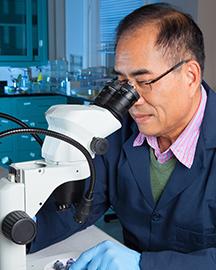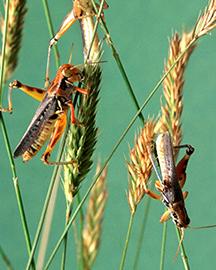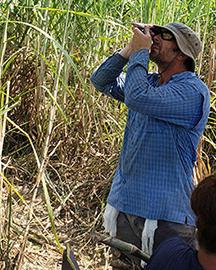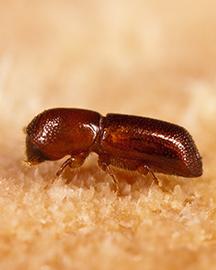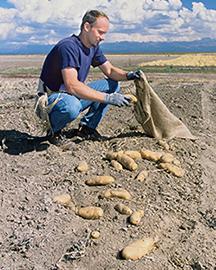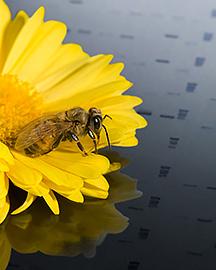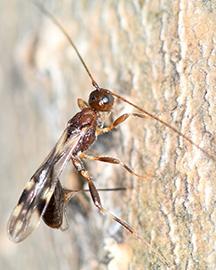For the Love of Coffee
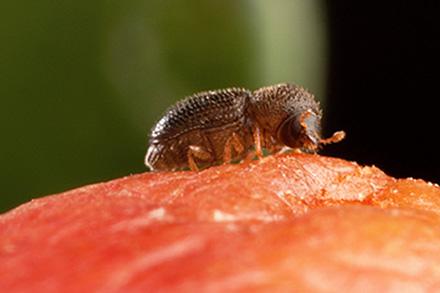
Coffee production in Puerto Rico, with an estimated annual value of $100 million, is under significant threat from the invasive coffee berry borer. Native to Africa, this tiny beetle enters and lays eggs in coffee cherries. Its larvae feed on coffee cherries, resulting in crop damage and economic losses for coffee growers.
ARS scientists with the Mycology and Nematology Genetic Diversity and Biology Laboratory in Beltsville, MD, and university researchers in Puerto Rico studied local Puerto Rican fungal strains as possible biological control agents for managing coffee berry borer in an environmentally sustainable manner. Fungi were good candidates, since they could kill these unwanted pests and thereby reduce crop damage. Scientists discovered that two fungal strains, applied individually and as a mixture, were equally or more effective than the commercial fungal strain in suppressing coffee berry borer infestations in Puerto Rico. The local strains also generally persisted longer in the environment than the commercial strain. These findings provided ARS scientists and university researchers with a better understanding of control options for coffee berry borer populations and will help growers reduce losses.




